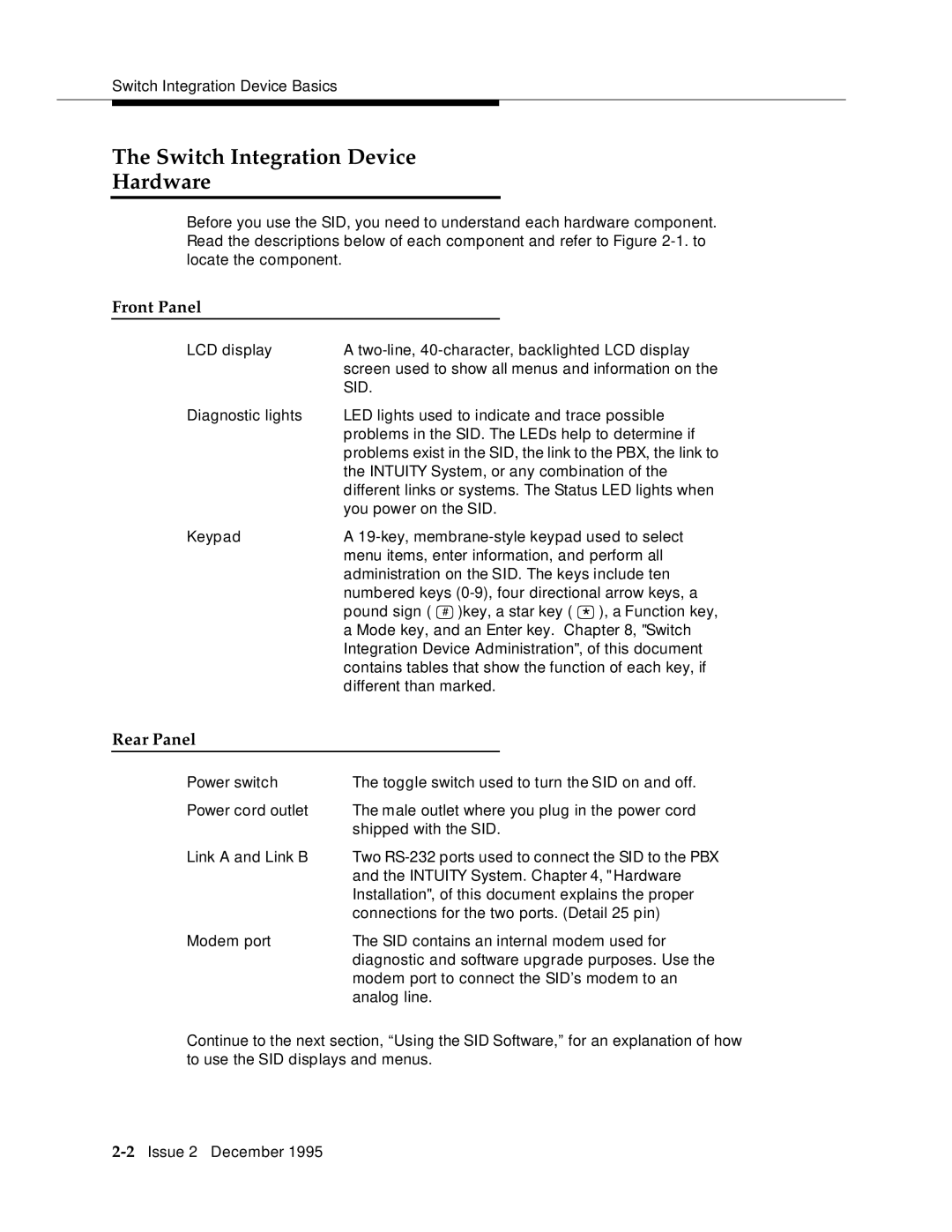
Switch Integration Device Basics
The Switch Integration Device
Hardware
Before you use the SID, you need to understand each hardware component. Read the descriptions below of each component and refer to Figure
Front Panel
LCD display | A | |||
| screen used to show all menus and information on the | |||
| SID. | |||
Diagnostic lights | LED lights used to indicate and trace possible | |||
| problems in the SID. The LEDs help to determine if | |||
| problems exist in the SID, the link to the PBX, the link to | |||
| the INTUITY System, or any combination of the | |||
| different links or systems. The Status LED lights when | |||
| you power on the SID. | |||
Keypad | A | |||
| menu items, enter information, and perform all | |||
| administration on the SID. The keys include ten | |||
| numbered keys | |||
| pound sign ( # )key, a star key ( | * | ), a Function key, | |
| a Mode key, and an Enter key. Chapter 8, "Switch | |||
| Integration Device Administration", of this document | |||
| contains tables that show the function of each key, if | |||
| different than marked. | |||
Rear Panel |
|
|
|
|
|
|
|
|
|
Power switch | The toggle switch used to turn the SID on and off. | |||
Power cord outlet | The male outlet where you plug in the power cord | |||
| shipped with the SID. | |||
Link A and Link B | Two | |||
| and the INTUITY System. Chapter 4, "Hardware | |||
| Installation", of this document explains the proper | |||
| connections for the two ports. (Detail 25 pin) | |||
Modem port | The SID contains an internal modem used for | |||
| diagnostic and software upgrade purposes. Use the | |||
| modem port to connect the SID’s modem to an | |||
| analog line. | |||
Continue to the next section, “Using the SID Software,” for an explanation of how to use the SID displays and menus.
